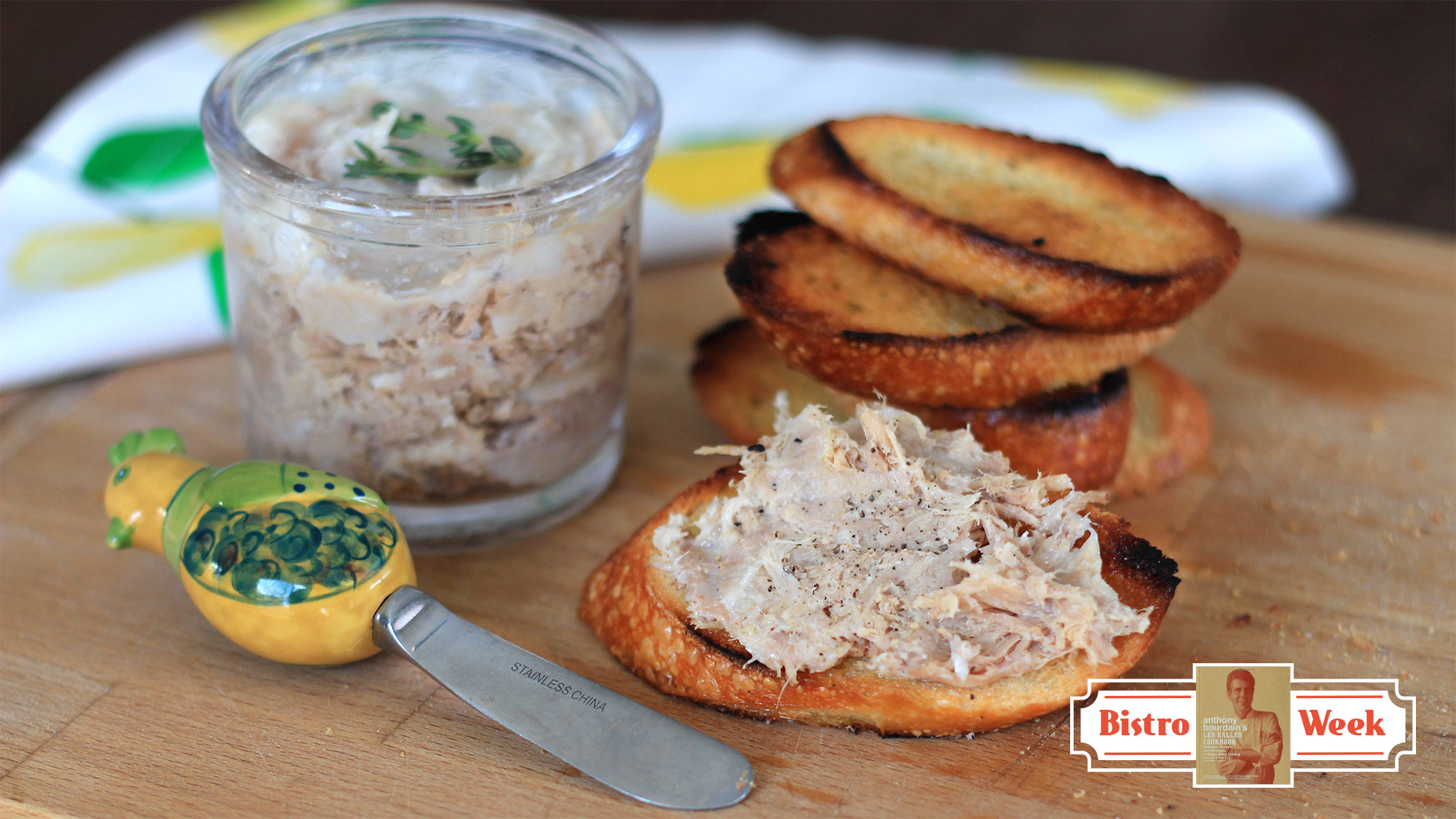Cooking From Anthony Bourdain's Les Halles Cookbook: A Show-Stopping Pork Rillette Recipe
All this week, The Takeout's Kevin Pang will be cooking from Anthony Bourdain's Les Halles Cookbook and writing about his experience.
One night during my mid-20s, I attended a posh dinner potluck. As a food writer I had to bring my A-game, so I brought the most beautiful fruit tart from a fancy local bakery. It looked like it belonged on the cover of a glossy food quarterly.
Except no one cared about my pricey fruit tart, because everyone was ogling a loaf of bread someone baked. This was before the Jim Lahey's no-knead bread revolution, and the thought that someone under the age of 60—as opposed to some crusty artisan at a Paris boulangerie—could bake their own bread was mind-blowing. The amateur baker then uttered the words that would become a refrain in my cooking adventures: "It's easier than you think."
When I attempted to bake bread for the first time, it was easier than I thought.
The first time I roasted a chicken, it was easier than I thought.
When I made boeuf Bourguignon this week, it was easier than I thought.
In cooking there are the seemingly unattainable, the dishes you'd think are best left to trained chefs, but are within grasp of the home cook. As I cooked my way through Anthony Bourdain's Les Halles Cookbook this week, I'm learning that with impressive bistro cooking, the secret is they want you to think there's a secret.
Let us consider rillettes, the potted meat charcuterie served with toasted bread on rustic cutting boards. The thought of making it from scratch never once crossed my mind. In fact, rillettes were one of those food I couldn't even picture produced from the hands of a cook—surely, it magically appeared in a glass jar by immaculate porkception.
Perhaps it's my perception of charcuterie as daunting, involving caul fats and humidity-controlled environs and curing time measured in months. Once, I tried making kielbasa via my KitchenAid sausage attachment, and you haven't experienced a pain in the ass until you're prying out dried pork chunks days later with a hairpin.
Leave it to Bourdain, motivational coach, to give the pep talk I needed in the Les Halles Cookbook. On making rillettes (pg. 86), he wrote:
Search "rillette recipes" online and you'll find variations using nutmeg, lemon juice, juniper berries, even ones that involve marinating in brandy overnight. The Les Halles version, as with the other dishes I've encountered this week, trimmed down the recipe to its core. Here, Bourdain took two pounds of pork belly and a pound of pork shoulder, simmered it in water for six hour with a sachet of bouquet garni. There was no seasoning with salt and pepper until the very end, when the pork chunks were taken off the heat, which you'd let cool and shredded apart with two forks. The pulled pork was then packed into jars, topped with a layer of fat*, then allowed to chill for three days for the flavors to "marry up in the fridge... This is the hardest part of the recipe because it's real good."
* The one confusing part of Bourdain's recipe is his instruction to take thin slices of pork fat and layer it on the pork for insulation. Is it okay to allow raw pork fat to come in contact with cooked meat? The book was vague about this. To be on the safe side, I rendered down the pork fat in an oven, then topped off the jarred pork with the warm oil.

Like in the boeuf Bourguignon, patience yielded dividends. On the third day, I took my jarred rillette out of the fridge, allowed to come to room temperature, then smeared it on olive oil-griddled baguette. Salty, fatty, porky, the smoothness of the rillette against the crunchy bread—it was becoming a recurring theme, but the fact it tasted like something from a bistro brought me an outsized thrill bordering on giddiness. There were many lessons I've already picked up from the Les Halles Cookbook this week, but this was the recipe I would make again and again and again. Jesus, this dish was so much easier than I thought.
Tomorrow: The splendor of skate wing Grenobloise.
